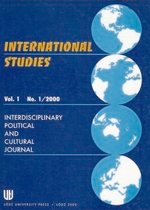BOLIVIA UNDER THE LEFT-WING PRESIDENCY OF EVO MORALES—INDIGENOUS PEOPLE AND THE END OF POSTCOLONIALISM?
BOLIVIA UNDER THE LEFT-WING PRESIDENCY OF EVO MORALES—INDIGENOUS PEOPLE AND THE END OF POSTCOLONIALISM?
Author(s): Martin NilssonSubject(s): Politics / Political Sciences, Social Sciences, Political Sciences, Sociology, International relations/trade, Economic development, Geopolitics
Published by: Wydawnictwo Uniwersytetu Łódzkiego
Keywords: Bolivia; postcolonialism; indigenous people; democracy; socioeconomic development
Summary/Abstract: This article explores the development in Bolivia under president Evo Morales, through a critical postcolonial approach. From a traditional liberal perspective, this article concludes that the liberal democratic system under Morales has not been deepening, though certain new participatory aspects of democracy, including socio-economic reforms have been carried out. In contrast,this article analyses to what extent the presidency of Evo Morales may be seen as the end of the postcolonialism, and the beginning of a new era in which Bolivia’s indigenous people finally have been incorporated into the forward development of a multi-ethnic society. By analysing issues such as time, nation,land, space, globalization and language, the conclusion is that the new constitution marks a fresh beginning, one beyond the colonial and postcolonial eras, for indigenous groups, but it will not bring back the old indigenous societies as was dominating the territory of today’s modern state.
Journal: International Studies: Interdisciplinary Political and Cultural Journal (IS)
- Issue Year: 15/2013
- Issue No: 1
- Page Range: 35-48
- Page Count: 16
- Language: English

